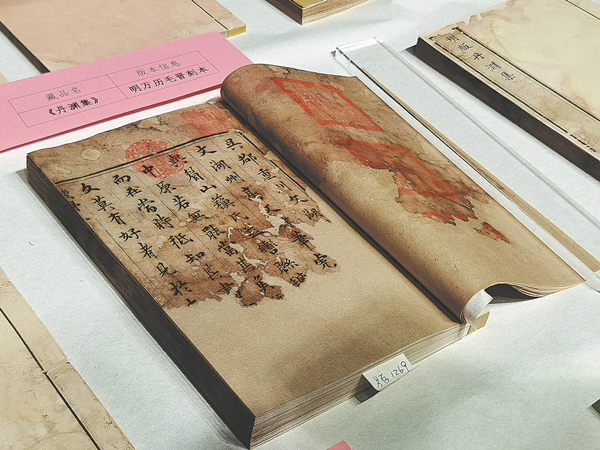Preserving the pages of history
The restoration of a vast ancient book collection, hailed as a milestone in literature conservation, is helping to inject new blood into the field, Wang Kaihao reports.
By Wang Kaihao | China Daily | Updated: 2022-01-14 08:53

"Human experience and traditional craftsmanship will never be entirely replaced, though," Zhu says.
Contrary to the public's general impression, ancient book restorers do not wear gloves when fixing the pages.
"Your skin has to nurture a feeling for paper and its patina," Zhu says. "That can only be gained through touch."
Not every restorer is excellent. In ancient times, restoration mostly relied on the experience of the restorer to choose the paper to fix the pages and decide how thick it should be, and, as a result, many errors were made.
"It poses a new question," Cui says. "A principle of our job demands that the restored relic should look just like the original, but what counts as 'original'? Its original situation when the book was first published? Or its appearance after being fixed by previous restorers?"
There was a debate on how the project should handle the marks of previous restorations. A consensus was finally reached: If the previous fixing method threatens the safety of the paper, it should be removed. Otherwise, it would be retained as a historical witness, even if it might not always be the best solution.
Cui understands her work is not to give the books an impeccable appearance, because their restoration is also part of history.
If some characters were already missing in the books, she will not fill them back in, nor will she clean all of the mildew spots on the yellowing pages.
She says:"I can wipe them out if I use chemical reagents, but what if people in the future find that I made the wrong decision?"
All restoration marks on Tianlu Linlang this time are "reversible".
"If future restorers have a better idea, they can go back and fix my work, or continue from where I left off," Cui says.
Contact the writer at wangkaihao@chinadaily.com.cn
























